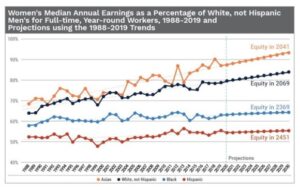Women in the Workplace
— BRAVE CONVERSATIONS SERIES —
A Deliberate Approach to Diversity, Equity, and Inclusion
Lawrence Hall’s DEI Committee strives to ensure Lawrence Hall is a diverse, equitable environment of belonging and inclusivity. Having “brave conversations” about diversity, equity, and inclusion (DEI) in the workplace is a necessity for healthy company culture and requires honesty, compassion, and self-reflection of all involved. Our Brave Conversations Series highlights topics not normally discussed but that have deep, personal impacts on our staff, youth, families, and communities.
March is Women’s History Month, so this month’s Brave Conversations will focus on issues facing women today. Our last conversation this month discusses women in the workplace.
What issues do women face in the workplace?
Pay gaps
 While there are many hurdles and difficulties for women at work—we discussed sexual harassment last week—three of the top work-related issues women navigate are equal pay for equal work, child rearing expectations and hurdles, and moving up the career ladder.
While there are many hurdles and difficulties for women at work—we discussed sexual harassment last week—three of the top work-related issues women navigate are equal pay for equal work, child rearing expectations and hurdles, and moving up the career ladder.
“According to the U.S. Department of Labor, women earn less than men on average in nearly 350 different occupations,” Aldon Thomas Stiles writes for California Black Media.
To create more awareness around pay inequity, Equal Pay Day was created in 1996 and symbolizes the average date until which women would have to work to earn the same amount men earned in the year prior. This date changes every year based on updated wage gap statistics, and this year, Equal Pay Day was Tuesday, March 15.
The pay gap increases at the intersection of gender and race. The American Association of University Women estimates that white women earn $.83 to every dollar white men earn, while Black women earned only $.58 for every dollar white men earn. Hispanic women are even farther behind.
For more detailed graphs and demographic information including Native populations and the American Asian and Pacific Islander ethnicities, see the Center for American Progress’ article, “Women of Color and the Wage Gap.”
Motherhood and career
Maternal wall bias, or the “motherhood penalty,” is a form of discrimination where mothers and pregnant women are viewed as less committed to and less competent in their jobs due to raising children.
A controlled Cornell University hiring study found that only 47% of mothers were recommended for hire in comparison with 84% of women who didn’t have children. In addition, while women were penalized in the hiring process for being mothers, men were not penalized for—and often benefited from—having children.
Job flexibility, career track fulfillment, and the cost of childcare also contribute to the difficulties of choosing kids over career. For some women, going back to a career is simply not financially feasible. “The cost of childcare was more than my salary,” remarked a new mother in one Northwestern study.
“Being a mom is a greater predictor of wage and hiring discrimination than gender – and due to structural racism, (BIPOC mothers) experience compounded wage and hiring discrimination,” executive director and co-founder of MomsRising.org Kristin Rowe-Finkbeiner states.
Glass ceilings
 Issues of pay equity and child-rearing only make promotion tracks for women even more difficult. Women are consistently judged as having less leadership potential than men.
Issues of pay equity and child-rearing only make promotion tracks for women even more difficult. Women are consistently judged as having less leadership potential than men.
“What is commonly talked about in terms of management and potential are characteristics such as assertiveness, execution skills, charisma, leadership, ambition,” Yale Professor Kelly Shue says in the video at right. “These are, I believe, real traits. They’re also highly subjective and stereotypically associated with male leaders. And what we saw in the data is a pretty strong bias against women in assessments of potential (despite receiving higher job performance ratings).”
Women must prove their competence over and over, while men get the benefit of the doubt. This “Prove-It-Again” mentality is compounded with the intersectionality of race and gender.
“Women of color differ from group to group in their (work) experience,” states Joan C. Williams, co-author of the book What Works for Women at Work. “Latinos often have a problem of being too feminine and need to tone it down. Black women seem to have greater “Prove-It-Again” problems; even if they are extremely accomplished, they feel they can’t make one single mistake. Asian American women are better off if they’re not seen as women, but as Asian, so many actually work to play that image up.”
RESOURCES
Are Women Too Timid When They Job Search? – Forbes
Proof versus potential: Why women must work harder to move up – BBC
“Potential” and the Gender Promotion Gap – Yale School of Management
Not Very Likeable: Here Is How Bias Is Affecting Women Leaders – Forbes
On Equal Pay Day, women are trying to make a dollar out of 83 cents – NPR
What to Do When Ambition and Motherhood Feel Like a Zero-Sum Game – Entrepreneur
Getting a Job: Is There a Motherhood Penalty? – American Journal of Sociology
MOVIES
On the Basis of Sex (2018)
Hidden Figures (2019)
Made in Dagenham (2010)
Battle of the Sexes (2017)
What Men Want (2019)
BOOKS
The Memo: What Women of Color Need To Know To Secure A Seat At The Table
Minda Harts
Playing Big: Practical Wisdom for Women Who Want to Speak Up, Create, and Lead
Tara Mohr
How to be Successful Without Hurting Men’s Feelings
Sarah Cooper
What Works for Women at Work: Four Patterns Working Women Need to Know
Joan C. Williams and Rachel Dempsey
PODCASTS
Battle Tactics For Your Sexist Workplace
Being an Ally, Part I: How Men Can Advocate for Women | Fairer Cents
Being an Ally, Part II: How White Women Can Advocate for Women of Color | Fairer Cents
Search
Categories
- Blog (15)
- Grants and Awards (5)
- News (75)
Lawrence Hall is a 501(c)(3) organization. Gifts are deductible to the full extent allowable under IRS regulations.
©2025 Lawrence Hall All rights reserved. Site Construction by WorkSite









